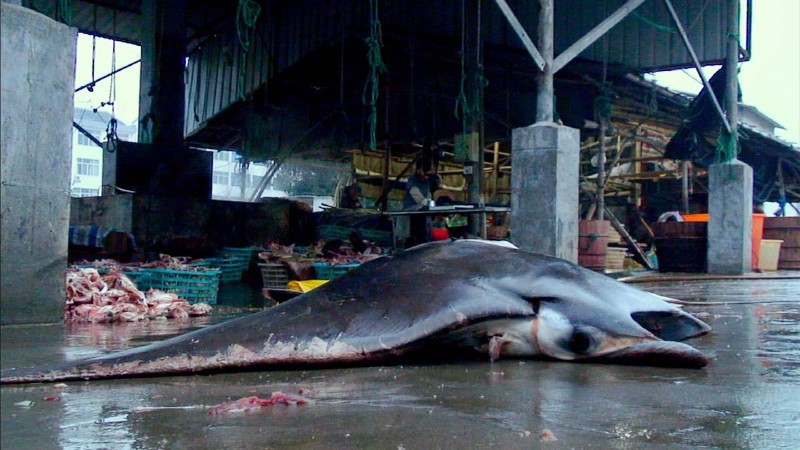
The inhabitants of Lamakera, a small village located in Central Indonesia, have fished for centuries. But over the last two decades, increased demand and enhanced technology have taken fishing from a modest source of sustenance to a devastating pursuit of profit. China’s demand for manta gill rakers, which are used for pseudo-medicinal purposes, turned Lamakera into one of the centres of the global trade. In the past, Lamakerans hunted rays in dugout canoes and sailboats and used only the meat. But there was a dramatic shift in this activity about 20 years ago. When buyers told fishermen that they could also sell the skin, bones and gill rakers, the use of more efficient motor boats were then deployed. Since then, the number of manta and mobula rays that are caught has declined 75%, signaling their local depletion.
In January 2014, the Indonesian government declared a nationwide ban on manta ray hunting in response to growing pressure from scientists and conservationists, as well as economic studies that demonstrated the worth of live manta rays to the Indonesian economy. After this announcement, a coalition of NGOs and passionate individuals began to work with Lamakerans. Their goal was to end manta ray hunting in the region, redirect villagers’ focus to new sources of income, and create a model that could be used to transform the practices of other communities.
The project is working. Since 2017, there has been a 97% decrease in the number of mantas hunted. 48 Fishermen and former manta hunters have pledged to stop hunting mantas and have joined our Sustainable Fisheries Collective. New businesses have been developed as an alternative source of income for these fishermen, including a Bonito Tuna Fishery, an ice delivery service, a mini-market, a savings and loans facility, and a seaweed aquaculture enterprise. And even more promising, over 30 members in five villages have joined our team of Community Rangers and Marine Stewards, creating our team of local ocean ambassadors.
A Manta Fishing Village’s Transformation in ‘Racing Extinction’